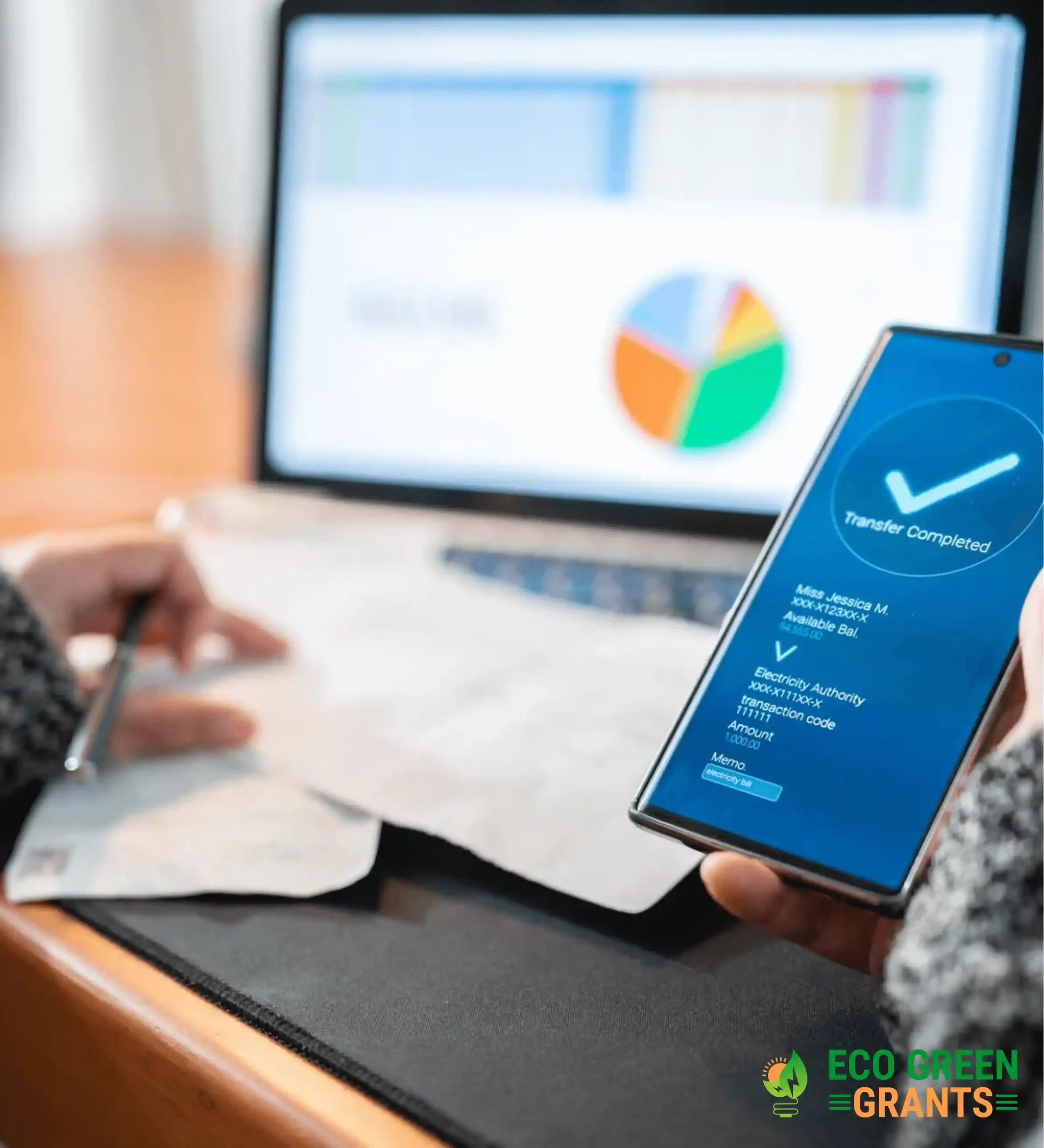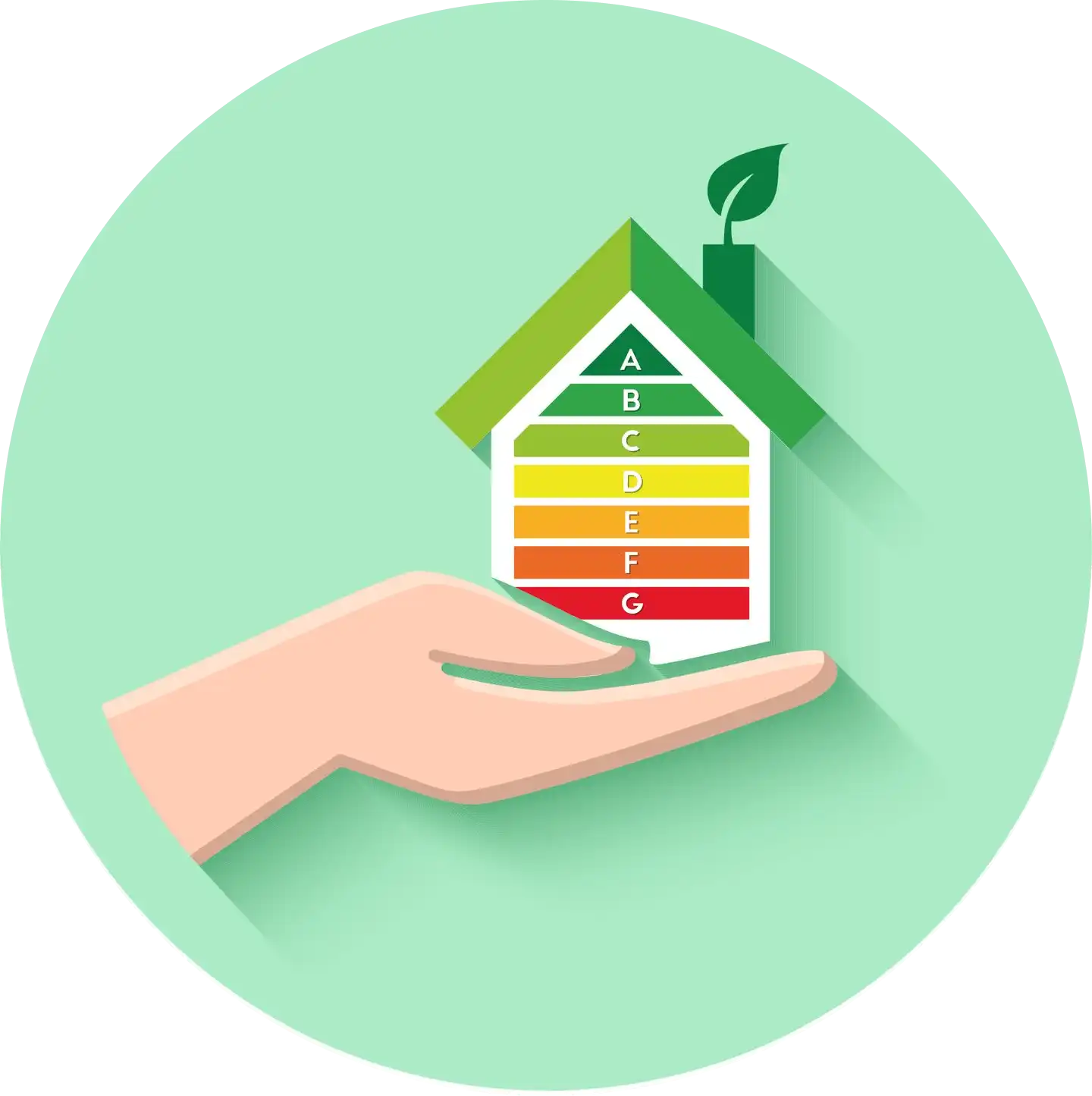What is ECO and How to Avail Free GOVT Grant
The Energy Company Obligation (ECO) is a pivotal UK government initiative aimed at promoting energy efficiency and reducing carbon emissions throughout England, Scotland, and Wales. Primarily designed to combat fuel poverty, ECO enables vulnerable and low-income households to access essential energy-saving measures at no cost. These measures typically include upgrading inefficient heating systems, installing various types of insulation, and incorporating renewable energy solutions to ensure homes are warmer, healthier, and more economical to run. Let’s cover all your questions like what is eco and what are it’s benefits in this guide.
ECO not only addresses immediate household needs by lowering energy bills and improving living conditions but also contributes to the broader environmental objective of reducing the nation’s carbon footprint. By mandating large and medium-sized energy suppliers to fund and implement these improvements, ECO fosters a collective effort towards a more sustainable and energy-efficient future.
Check Your Eligibility Here

History and Evolution of ECO
After covering what is eco let’s have a look at it’s history and evolution. The Energy Company Obligation (ECO) has been a cornerstone of the UK’s environmental policy since its introduction in 2013. This scheme emerged as a successor to previous initiatives like the Carbon Emission Reduction Target (CERT) and the Community Energy Saving Programme (CESP), marking a significant shift in the government’s approach to combating fuel poverty and reducing carbon emissions.



ECO's Inception and Phases
- ECO1 (2013-2015): Launched in January 2013, the initial phase of ECO was aimed at increasing energy efficiency in homes through measures like insulation and boiler upgrades. It focused on both reducing energy bills for low-income households and lowering overall carbon emissions.
- ECO2 (2015-2017): Building on the successes and lessons of ECO1, this phase continued to push for home energy efficiency improvements. However, it began to place a stronger emphasis on reaching households in fuel poverty.
- ECO3 (2018-2022): The third phase saw a further refined focus on vulnerable and low-income households. ECO3 expanded the scope of eligible energy-saving measures and aimed to make a more significant impact on reducing household energy bills and enhancing living conditions.
- ECO4 (2022-2026): The latest iteration, which began in 2022, has shifted towards a more targeted approach. Focusing on the least energy-efficient homes, ECO4 aims to make substantial improvements in household energy performance, particularly in properties rated D to G for energy efficiency.
Shifts in Focus and Strategy
Throughout its evolution, ECO has shifted from a broad strategy aimed at general energy savings to a more focused approach targeting the most vulnerable sectors of society. This transition reflects a growing understanding of the intersection between energy efficiency, fuel poverty, and environmental sustainability. The scheme’s adaptations over time demonstrate the government’s commitment to both social and environmental objectives, highlighting a nuanced approach to addressing complex challenges.
Understanding the ECO Scheme
The Energy Company Obligation (ECO) scheme is a framework designed by the UK government to reduce household energy use, cut carbon emissions, and tackle fuel poverty. It mandates major energy suppliers to fund and implement energy efficiency measures in British homes, focusing primarily on low-income and vulnerable households. Understanding how ECO operates provides insights into its impact and how it assists eligible households.
Key Components of the ECO Scheme
- Obligated Energy Suppliers: ECO requires large energy suppliers — those providing a certain threshold of energy to UK homes — to participate actively in the scheme. These suppliers are obligated to spend a specified amount on energy efficiency measures, directing their efforts towards households that stand to benefit the most.
- Eligible Measures: The ECO scheme encompasses a variety of energy-saving measures. These typically include insulation (loft, wall, and underfloor), heating system upgrades, and the installation of renewable energy technologies. The objective is to reduce energy demand in homes, thereby lowering energy bills and improving living conditions.
- Target Demographics: While the scheme is available to a broad range of households, it particularly targets those in fuel poverty or on low incomes, as well as vulnerable groups such as the elderly and those with health conditions exacerbated by cold homes. The intention is to ensure that the benefits of energy efficiency are felt by those who need them most.
How Does ECO Work?
We have pretty much answered what is eco but now the point remains that how it works. The Energy Company Obligation (ECO) operates through a series of structured steps and regulations designed to improve energy efficiency and reduce energy bills for vulnerable and low-income households across the UK. Its operational framework is built on collaboration between the government, energy suppliers, and homeowners to ensure the effective delivery of energy-saving measures.
Key Steps in the ECO Process
- Obligation on Energy Suppliers: Large energy suppliers in the UK are legally required to help improve domestic energy efficiency. This obligation is set in terms of a total amount of energy savings that they need to achieve, with a focus on assisting vulnerable and low-income households.
- Identification of Eligible Households: Households that qualify for the ECO scheme are typically those experiencing fuel poverty, on low incomes, or living in properties with low energy efficiency. Eligibility can also depend on whether household members receive specific government benefits.
- Assessment and Recommendation: Once identified, eligible households may undergo a professional assessment to determine which energy-saving improvements could be made. This could include anything from boiler replacements to insulation installations.
- Implementation of Measures: Accredited installers then carry out the recommended energy efficiency measures. These installers are often contracted by the energy suppliers or their partners, ensuring that the work meets specific quality and safety standards.
- Funding and Financing: The costs associated with these improvements are covered by the obligated energy suppliers. The funding mechanism is designed to ensure that households do not have to pay for these improvements, removing financial barriers to energy efficiency.
- Verification and Compliance: After the installation of energy-saving measures, there is a process of verification and compliance to ensure that the work has been completed to a satisfactory standard. This step involves both the installers and the energy suppliers and may be overseen by Ofgem, the scheme’s administrator.
Apply Now
Customized Grant Matching
End-to-End Application Support
Aftercare Service
Common Questions Answered
1. What is ECO scheme?
The Energy Company Obligation (ECO) is a government initiative in the UK designed to help reduce carbon emissions and tackle fuel poverty by making homes more energy-efficient. It requires large energy suppliers to fund and implement energy-saving measures in vulnerable and low-income households.
2. How do I know if I am eligible for the ECO scheme?
Eligibility for the ECO scheme is typically based on factors such as household income, whether you or someone in your home receives certain government benefits, and the energy efficiency rating of your property. Households in fuel poverty or those with members who are elderly, disabled, or have long-term health issues are also often prioritized.
3. What types of improvements can be funded through the ECO scheme?
The ECO scheme can fund various home improvements aimed at increasing energy efficiency, including but not limited to loft, wall, and floor insulation, boiler replacements, and the installation of renewable energy sources like solar panels.
4. How can Eco Green Grants assist me with the ECO scheme?
Eco Green Grants can help by assessing your eligibility, guiding you through the application process, coordinating with energy suppliers, and ensuring that the energy efficiency measures are installed correctly in your home.
5. Is there a cost to apply for the ECO scheme through Eco Green Grants?
No, applying for the ECO scheme through Eco Green Grants should not incur a cost. The service aims to facilitate access to government-backed energy efficiency grants without additional charges.
6. How long does it take to complete energy efficiency improvements under the ECO scheme?
The time frame can vary depending on the type and extent of improvements being made. Typically, once eligibility is confirmed and the measures are agreed upon, the installation can be completed within a few weeks to months.
7. Can I apply for the ECO scheme if I am not a customer of a large energy supplier?
Yes, you do not need to be a customer of the obligated energy suppliers to qualify for the ECO scheme. You can apply through any participating supplier or through an organization like Eco Green Grants.
8. How does improving my home's energy efficiency benefit me?
Improving your home’s energy efficiency can lead to significant savings on energy bills, enhanced home comfort, better health outcomes, and a reduced environmental impact through lower carbon emissions.
9. Can landlords apply for the ECO scheme?
Yes, landlords can apply for the ECO scheme, but they must have the consent of their tenants and ensure that the property meets the eligibility criteria. Improvements made under the scheme can benefit tenants by reducing their energy bills and improving living conditions.
10. How can I start the application process for the ECO scheme?
You can start by contacting Eco Green Grants or a participating energy supplier to check your eligibility. They will guide you through the application process, from the initial assessment to the installation of energy-saving measures.
Benefits of ECO for Households
The Energy Company Obligation (ECO) scheme provides numerous benefits to households across the UK, particularly those in vulnerable positions or experiencing fuel poverty. Understanding these benefits can help eligible households take full advantage of the scheme and improve their living conditions significantly.
01
Reduced Energy Bills
- Lower Heating Costs: By improving home insulation and upgrading heating systems, ECO helps to reduce the amount of energy needed to heat homes, leading to lower energy bills.
- Long-term Savings: The energy-saving measures installed through ECO can provide savings on energy bills for many years, making it a long-term financial benefit.
02
Enhanced Home Comfort
- Improved Insulation: Homes with enhanced insulation retain heat better during winter and stay cooler in summer, leading to a more comfortable living environment year-round.
- Consistent Temperatures: Upgraded heating systems and better-insulated homes result in more consistent indoor temperatures, reducing cold spots and making homes more comfortable.
03
Health Benefits
- Reduced Damp and Mould: Improvements such as better insulation and ventilation can help reduce dampness and mould growth, which are linked to respiratory problems and other health issues.
- Warmer Homes: Living in a warmer home has been shown to improve overall health, particularly for those with chronic illnesses, the elderly, and children.
04
Environmental Impact
- Lower Carbon Footprint: By reducing the amount of energy needed to heat and power homes, ECO contributes to a decrease in household carbon emissions, aiding the UK's efforts to combat climate change.
- Sustainable Living: The scheme encourages the adoption of more sustainable energy solutions, such as solar panels or more efficient boilers, supporting a move towards greener living.
05
Increased Property Value
- Home Improvements: Energy efficiency improvements can increase the value of a property, making it more attractive to potential buyers or renters.
- Energy Performance Certificates: Homes with higher ratings on Energy Performance Certificates (EPCs) can be more appealing in the housing market.
06
Social and Economic Benefits
- Job Creation: The implementation of ECO supports jobs in the green energy and home improvement sectors, contributing to the local economy.
- Community Improvement: Neighbourhoods with higher rates of ECO participation may see overall improvements in property conditions and community well-being.
Types of Energy Efficiency Improvements
Energy efficiency improvements are key components of the Energy Company Obligation (ECO) scheme, designed to help households reduce energy consumption, lower carbon emissions, and ultimately save on energy costs. These improvements vary in scope and scale but collectively contribute to making homes more sustainable and comfortable.
01
Insulation
- Loft Insulation: Reduces heat loss through the roof by laying insulating material in the attic space.
- Cavity Wall Insulation: Fills the gap between the outer and inner layers of external walls, preventing heat from escaping.
- Solid Wall Insulation: Applies insulating material to solid walls, significantly improving heat retention in older homes.
02
Windows and Doors
- Double Glazing: Installing double-glazed windows reduces heat loss, improves sound insulation, and enhances security.
- Energy-Efficient Doors: Replacing old doors with energy-efficient ones to reduce drafts and heat loss.
03
Heating Systems
- Boiler Replacement: Swapping out old, inefficient boilers for newer, energy-efficient models.
- Heating Controls: Installing thermostats, programmers, and radiator valves to better control home heating.
- Renewable Heating Solutions: Incorporating renewable energy sources like solar thermal systems, air source heat pumps, or biomass boilers.
04
Renewable Energy Installations
- Solar Panels: Converting sunlight into electricity to power homes, reducing reliance on the grid and cutting electricity bills.
- Wind Turbines: Small-scale wind turbines can be installed in suitable areas to generate renewable energy.
How to Avail the ECO Scheme
Accessing the benefits of the Energy Company Obligation (ECO) scheme can significantly reduce your home energy costs and improve living conditions. If you believe you might be eligible, follow these steps to apply for the ECO scheme:
Step 1: Check Eligibility
- Income and Benefits: Typically, eligibility for the ECO scheme is linked to household income and whether someone in the household receives certain government benefits, such as Universal Credit, Pension Credit, or Child Tax Credits.
- Property Eligibility: The type of property you live in and its current energy efficiency rating can also affect eligibility. Homes with lower energy efficiency ratings are often prioritised.
- Residency: You must be a resident in England, Scotland, or Wales and either own your property or have permission from your landlord to make energy improvements.
Step 2: Find an ECO Supplier
- List of Obligated Suppliers: Large energy companies are typically the ones obligated under the ECO scheme. You can find a list of these suppliers on the Ofgem website or by contacting your local energy advice centre.
- Contact Suppliers: You do not need to be an existing customer to benefit from a supplier’s ECO scheme, so contact multiple suppliers to see what they offer.
Step 3: Assessment and Recommendations
- Energy Assessment: If you meet the initial eligibility criteria, an energy assessment of your home may be required. This will determine what improvements can be made and how much you could save on energy bills.
- Recommended Measures: Based on the assessment, the supplier will recommend certain energy efficiency improvements suitable for your home.
Step 4: Installation of Measures
- Choosing an Installer: Once you’ve agreed on the measures, the energy supplier will arrange for an accredited installer to carry out the work. Ensure the installer is certified and registered with a scheme like TrustMark for quality assurance.
- Scheduling the Work: Coordinate with the installer to schedule a convenient time for the work to be done. The duration will depend on the complexity and extent of the measures being installed.
Step 5: Post-Installation Review
- Completion and Review: After the installation, ensure everything has been completed to your satisfaction and according to the agreed plan. Some suppliers may conduct a post-installation review to ensure the work meets regulatory standards.
- Feedback: Providing feedback to the energy supplier or installer can help improve the process for others and ensure any issues are addressed promptly.
Eligibility Criteria for ECO4
The fourth phase of the Energy Company Obligation (ECO4) introduces updated eligibility criteria aimed at ensuring the scheme reaches those most in need of energy efficiency improvements. Understanding these criteria is essential for households looking to benefit from the scheme. Below are the key eligibility factors for ECO4:
Income and Benefits-Based Criteria
Qualifying Benefits: Households receiving certain means-tested benefits may qualify for the ECO4 scheme. These benefits include but are not limited to:
- Universal Credit (UC)
- Pension Credit Guarantee Credit
- Income Support (IS)
- Income-based Jobseeker’s Allowance (JSA)
- Income-related Employment and Support Allowance (ESA)
- Working Tax Credit (WTC)
- Child Tax Credit (CTC)
- Housing Benefit
- Child Benefit (subject to income thresholds)
Property Eligibility
- Energy Efficiency Rating: ECO4 targets properties with lower energy efficiency ratings, specifically those rated D to G. The aim is to improve the least energy-efficient homes to help reduce fuel poverty and carbon emissions.
- Type of Property: Both privately owned and privately rented homes may be eligible, but rented properties require the landlord’s permission for energy efficiency improvements.
- Location: The property must be located in England, Scotland, or Wales.
Exclusions and Considerations
- Previous ECO Work: Homes that have previously received certain types of ECO improvements may not be eligible for the same measures under ECO4. However, they might still qualify for different types of work.
- New Build Properties: Generally, new build properties are not eligible unless they are occupied by someone meeting specific criteria set out by the local authority under LA Flex.




